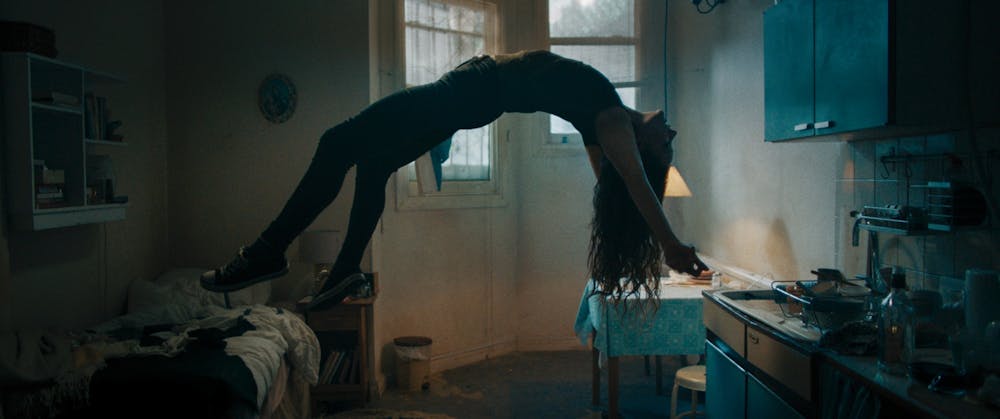A chilling atmosphere, excellent acting and surreal storytelling all help Rose Glass’ "Saint Maud" rise above the tropes of its genre, resulting in a strong and captivating debut feature for Glass.
"Saint Maud" is a psychological thriller distributed by A24 — recently released after a long delay due to the pandemic — that follows a palliative care nurse with a dangerous and violent obsession with her faith as she loses her grip on reality.
One of the most interesting aspects of the film is Glass’ sharp and bold direction. From the heart-stopping opening scene, the technical prowess engulfs and engages the viewer. From this point forward, we remain at her mercy.
Glass utilizes numerous visual elements to set the atmosphere, including distinct color grading and steady, controlled cinematography.
The meticulousness with which Glass selects her visual techniques is impressive: the shots are expertly framed and give the film a stylish and distinct look. Steady and handheld cameras are used interchangeably to reflect the tone of different scenes. Particular shots and scenes are color graded in creative and stylized ways to set unsettling moods.
As the story progresses, the audience is subjected to increasingly violent imagery. Throughout this disturbing progression, Glass never loses her control over the story and the audience. She achieves striking effect in presenting these sudden images but remains disciplined in her pacing.
Glass also makes strong use of Adam Janota Bzowski’s score, allowing the dissonant music to aptly accompany the grisly images on the screen. The sound design assists in creating an unnerving tone in numerous scenes. However, Glass never relies fully on the score, sometimes using silence to build tension.
The screenplay maintains a first-person perspective, often making use of unreliable voice-over narration. Glass handles these matters of perspective with skillful writing and directing, conveying the story carefully as it grows increasingly surreal.
Glass presents the surreal elements of the story effectively. While these events are consistently unsettling, they are never jarring or out of place. Her confidence behind the camera is clear from this bold approach, which is especially impressive from a debut director.



